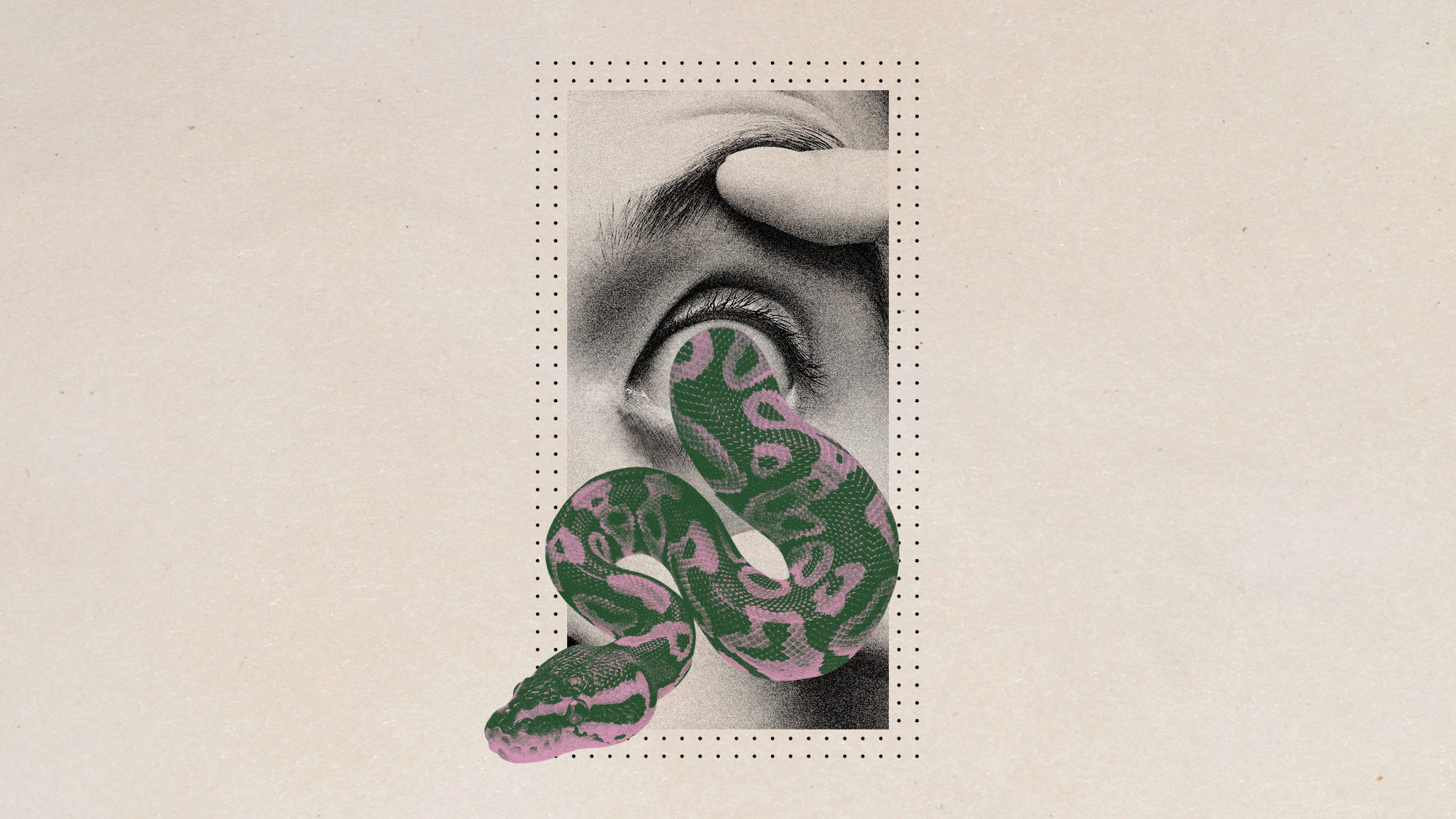Poor sleep may make you more prone to believing conspiracy theories
Catch those z's for society


A free daily email with the biggest news stories of the day – and the best features from TheWeek.com
You are now subscribed
Your newsletter sign-up was successful
Sleep, or a lack thereof, has been shown to have a significant impact on our mental and physical health. And scientists have found poor sleep can have larger societal impacts, namely increasing the likelihood of falling victim to conspiracies.
Sleep and slide
Poor sleep quality could make people more likely to support conspiracy theories, according to new research published in the Journal of Health Psychology. Specifically, "poor sleep has been shown to increase the risk of depression, anxiety and paranoia — factors that also contribute to conspiracy beliefs," Daniel Jolley, the study's research lead and a University of Nottingham assistant professor of social psychology, said in a news release.
The researchers conducted two studies. The first had 540 participants complete a sleep quality assessment before reading one of two articles about the 2019 Notre Dame Cathedral fire in Paris. "While some volunteers received a verified rundown of the devastating accident, others reviewed a story that falsely stated the blaze involved a cover-up conspiracy," said Popular Science. "Researchers noted those who previously cited worse sleep quality entertained the Notre Dame Cathedral conspiracy more often than their well-rested counterparts."
The Week
Escape your echo chamber. Get the facts behind the news, plus analysis from multiple perspectives.

Sign up for The Week's Free Newsletters
From our morning news briefing to a weekly Good News Newsletter, get the best of The Week delivered directly to your inbox.
From our morning news briefing to a weekly Good News Newsletter, get the best of The Week delivered directly to your inbox.
The second phase analyzed another 575 people to find an explanation for the link between poor sleep quality and conspiracy beliefs. The results found that depression was the main mechanism for believing in conspiracy theories. "Anger and paranoia also played a role, but their effects were less consistent," said the release.
Sleepless in society
While the study links poor sleep and affinity for conspiracy theories, this does not indicate causation. "Chronic stress or anxiety could contribute to both poor sleep and a heightened susceptibility to conspiratorial thinking," Jolley and Iwan Dinnick, a research fellow at the University of Nottingham and one of the study authors, said at The Conversation. "Improving mental health may be as important as better sleep." Despite that, conspiracy theories can be more harmful than expected.
Conspiracy theories have become more prevalent recently, making their mark on mainstream ways of thinking. "Buying into conspiracies doesn't just result in a newfound affinity for tin foil hats — subscribing to these beliefs can have much wider societal effects," said Popular Science. For example, "distrust of data-backed vaccine efficacy lowers a society's overall resilience against infectious diseases," and "misinformation surrounding climate change has for decades hampered ongoing efforts to combat its risks to humanity and our planet."
Societal implication aside, sleep is important for health. "Sleep services all aspects of our body in one way or another: molecular, energy balance, as well as intellectual function, alertness and mood," said Dr. Merrill Mitler, a sleep expert and neuroscientist at the National Institutes of Health. Lack of sleep can impair problem-solving skills and attention to detail, as well as lead to depression. Physically, those with poor sleep are at higher risk for obesity, heart disease and infections. "When we look at well-rested people, they're operating at a different level than people trying to get by on one or two hours less nightly sleep."
A free daily email with the biggest news stories of the day – and the best features from TheWeek.com
Devika Rao has worked as a staff writer at The Week since 2022, covering science, the environment, climate and business. She previously worked as a policy associate for a nonprofit organization advocating for environmental action from a business perspective.
-
 Switzerland could vote to cap its population
Switzerland could vote to cap its populationUnder the Radar Swiss People’s Party proposes referendum on radical anti-immigration measure to limit residents to 10 million
-
 Political cartoons for February 15
Political cartoons for February 15Cartoons Sunday's political cartoons include political ventriloquism, Europe in the middle, and more
-
 The broken water companies failing England and Wales
The broken water companies failing England and WalesExplainer With rising bills, deteriorating river health and a lack of investment, regulators face an uphill battle to stabilise the industry
-
 Scientists are worried about amoebas
Scientists are worried about amoebasUnder the radar Small and very mighty
-
 Metal-based compounds may be the future of antibiotics
Metal-based compounds may be the future of antibioticsUnder the radar Robots can help develop them
-
 A Nipah virus outbreak in India has brought back Covid-era surveillance
A Nipah virus outbreak in India has brought back Covid-era surveillanceUnder the radar The disease can spread through animals and humans
-
 Is the US about to lose its measles elimination status?
Is the US about to lose its measles elimination status?Today's Big Question Cases are skyrocketing
-
 Mixed nuts: RFK Jr.’s new nutrition guidelines receive uneven reviews
Mixed nuts: RFK Jr.’s new nutrition guidelines receive uneven reviewsTalking Points The guidelines emphasize red meat and full-fat dairy
-
 Trump HHS slashes advised child vaccinations
Trump HHS slashes advised child vaccinationsSpeed Read In a widely condemned move, the CDC will now recommend that children get vaccinated against 11 communicable diseases, not 17
-
 Deaths of children under 5 have gone up for the first time this century
Deaths of children under 5 have gone up for the first time this centuryUnder the radar Poor funding is the culprit
-
 A fentanyl vaccine may be on the horizon
A fentanyl vaccine may be on the horizonUnder the radar Taking a serious jab at the opioid epidemic
